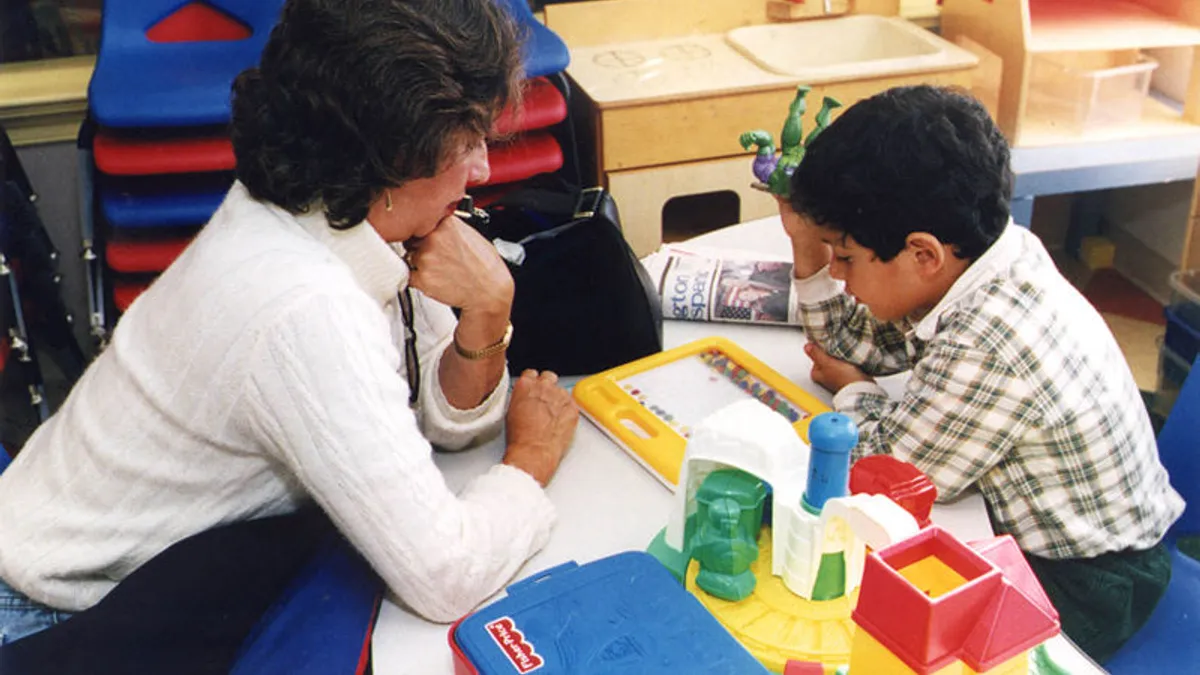Dive Brief:
- Almost 80% of secondary school principals agree their schools could be doing more to support students with disabilities, and only 12% say they felt prepared to meet these students’ needs when they became school leaders, according to a survey of more than 3,500 principals — part of the RAND Corp.’s American Educator Panel program.
- Administrators in schools serving more students of color were even more likely to say their schools could provide better educational services for students with special needs. These principals were also less likely than those in schools with fewer students of color to say they had sufficient leadership support, materials and tools, staff with specific expertise, and training and information.
- “Exploring discrepancies in support for special education affecting students of color is critical, given the established history of educational inequalities facing students of color,” write the authors of the survey report, adding that providing more support to principals might be a way for district, state and federal policymakers to improve outcomes among students with disabilities.
Dive Insight:
The responses provide another angle on the recent results of the Council for Exceptional Children’s “State of the Special Education Profession” report, which showed a quarter of the 1,467 special education teachers responding said their principals were “well-prepared to support [Individual Education Program] goals.”
Less than 20% said the same thing about other general education administrators in their schools. “Administrators who support the IEP process” was also ranked as the third most important factor in special educators’ success.
Many education leaders say responsibility rests with the federal government to provide more funding for the Individuals with Disabilities Education Act. According to experts, the federal government’s spending on IDEA falls short of the 40% required under the law. States such as Kansas and Texas have also been identified as not meeting IDEA obligations.
And in the Los Angeles Unified School District, Superintendent Austin Beutner recently noted California districts receive the same amount of funding per special education student, regardless of how severe the students’ needs are.
“We have unreimbursed costs,” he said during an address at the University of California Los Angeles, adding that to provide adequate services, some classrooms receive fewer resources. “I’m not trying to pit one group against another. We need to serve all of them.”
Researchers also highlighted this issue in an extensive report on the state of California’s schools in 2018, saying state spending on students with special needs “has not kept pace with district costs.”















